Are you looking to streamline your shipping freight payment process? Crafting a clear and concise letter template can make all the difference when it comes to communication with carriers and freight companies. In this article, we'll discuss essential elements to include in your letter, ensuring that all payment details are effectively conveyed. Let's dive in and explore the best practices for creating a shipping freight payment letter that minimizes confusion and maximizes efficiency!

Company Information
Shipping freight payment details require accurate company information to ensure smooth processing and timely deliveries. Key elements include the company name (e.g., Global Trade Solutions), physical address (such as 123 Commerce Lane, Cityville, State, ZIP Code), contact number (e.g., +1 (555) 123-4567), and email address (e.g., accounts@globaltradesolutions.com). Payment methods (e.g., wire transfer, credit card) should be specified alongside relevant details like bank account numbers or credit card information. Additional information such as the shipping reference number (e.g., SR123456) and invoicing terms (e.g., Net 30 days) are crucial for financial tracking. Ensuring this data is comprehensive and up-to-date enhances operational efficiency.
Payment Terms and Conditions
Shipping freight payment details play a crucial role in logistics management. Typically, invoices specify payment terms such as "net 30" (due within 30 days), which outlines the timeframe for settling freight costs associated with goods transported internationally, often through ports like Los Angeles or New York. Additional conditions might include advance payments, requiring upfront financing for shipments exceeding a specified amount, usually around $1,000, ensuring carriers are compensated before departure. It's essential to note potential fees, such as late payment penalties (often 1.5% monthly) for overdue invoices, alongside the provisions for adjustments related to fuel surcharges or currency fluctuations, particularly affecting international shipping agreements. Proper documentation, including bills of lading and receipts, is vital for transparency throughout the payment process.
Freight Invoice Number and Date
Freight invoice management is crucial for logistics operations, specifically in tracking shipping costs. The freight invoice number serves as a unique identifier for each transaction, allowing for efficient record-keeping and retrieval. Correctly recording the date of each invoice is essential for accurate payment processing and reconciliation. In industries such as e-commerce (estimated worth of $4.9 trillion in 2021) and manufacturing, maintaining precise freight payment details can significantly impact overall operating expenses. Shipping companies and freight forwarders rely on this information to ensure timely delivery and cost allocation, enhancing overall service efficiency across logistics networks.
Shipping Details and Description
Shipping freight involves multiple components, each crucial for successful transport. The logistics provider coordinates the journey, often starting from a major port like Los Angeles, California. Cargo types, including dry goods or perishables, are assigned specific containers to ensure safety. Tracking numbers enable customers to monitor their shipments in real-time, enhancing transparency. Payment details include total costs based on weight, distance, and service type, typically presented in invoices with due dates, often net 30 days. Customs clearance is essential, requiring additional paperwork and tariffs depending on the destination, such as Europe or Asia. Accurate documentation ensures compliance with international shipping regulations, avoiding delays or penalties.
Contact Information for Inquiries
Shipping freight payment details require precise information to ensure efficient processing. The specific contact information for inquiries typically includes a direct phone number, often starting with an area code such as (212) for New York City, alongside an email address (for example, info@shippingcompany.com) that facilitates quick communication. Additionally, the physical address where payment issues are resolved, such as 123 Shipping Lane, Suite 200, Chicago, IL 60601, must be clearly stated. Hours of operation, like Monday through Friday from 9 AM to 5 PM, can help in managing expectations for response times. Always include any relevant reference numbers, like the shipping invoice number, to streamline the inquiry process.

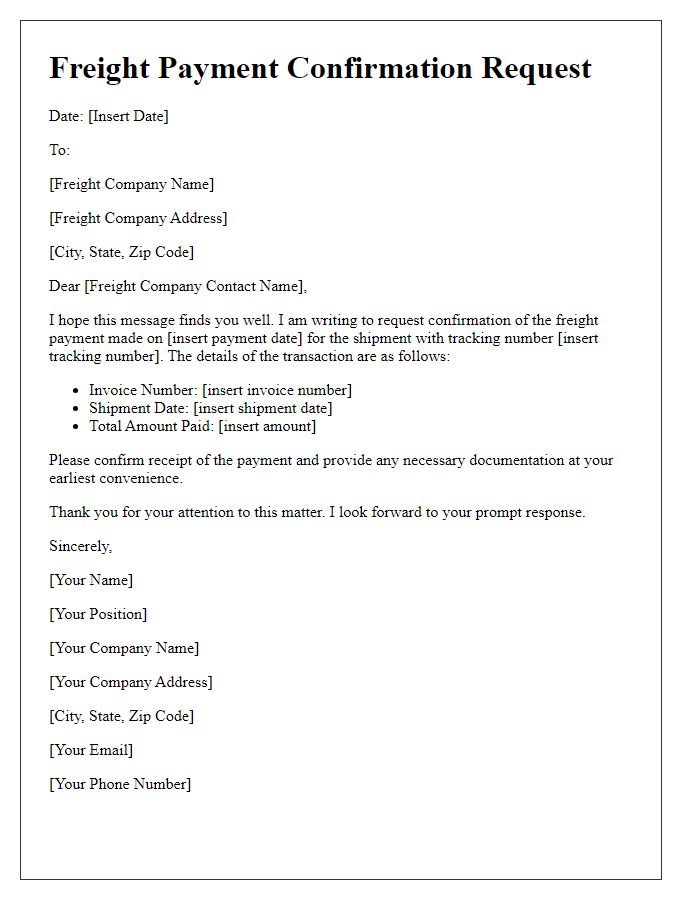
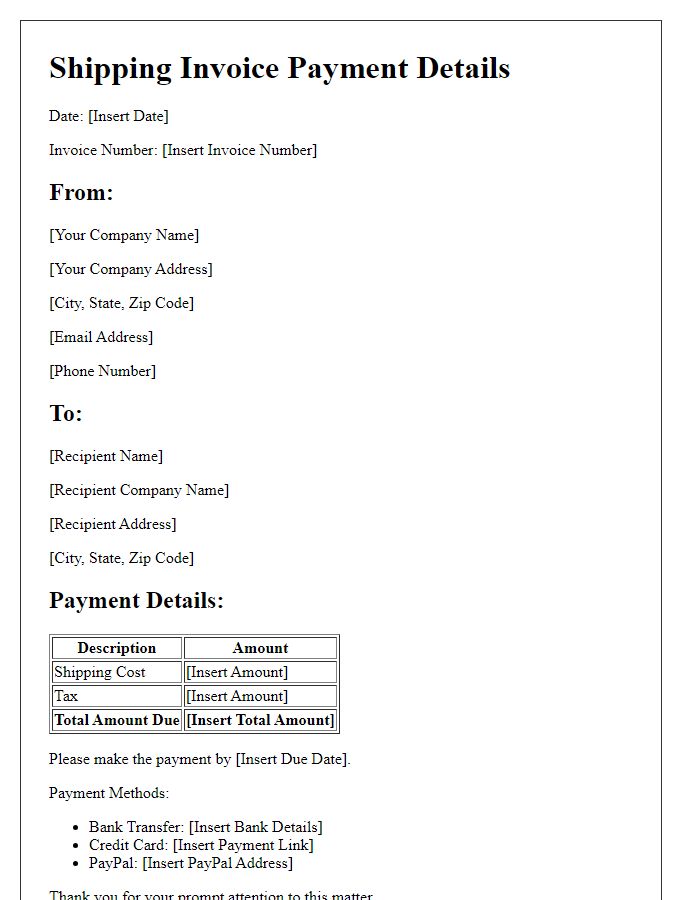
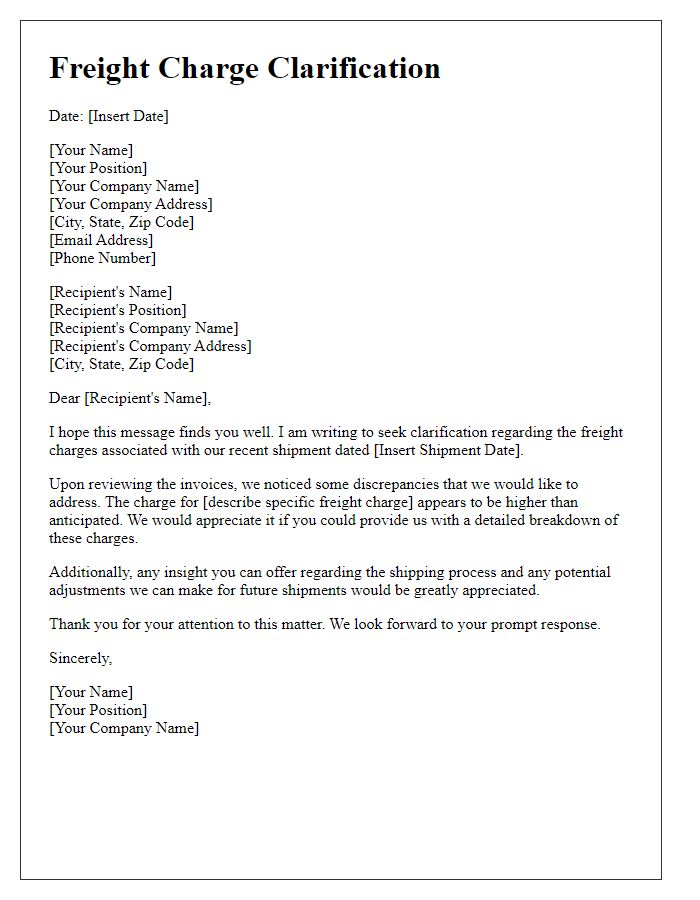
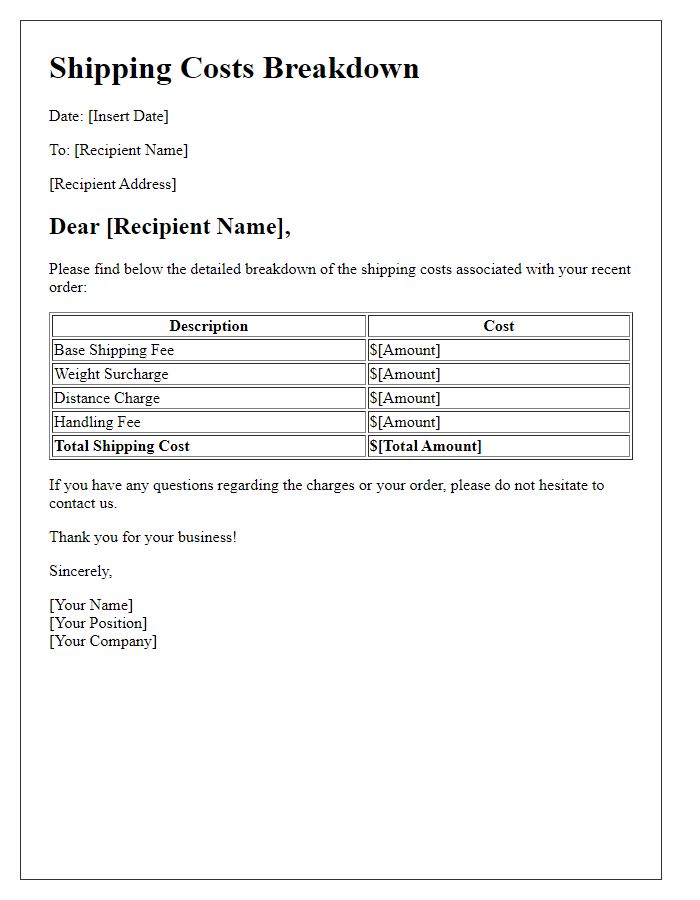
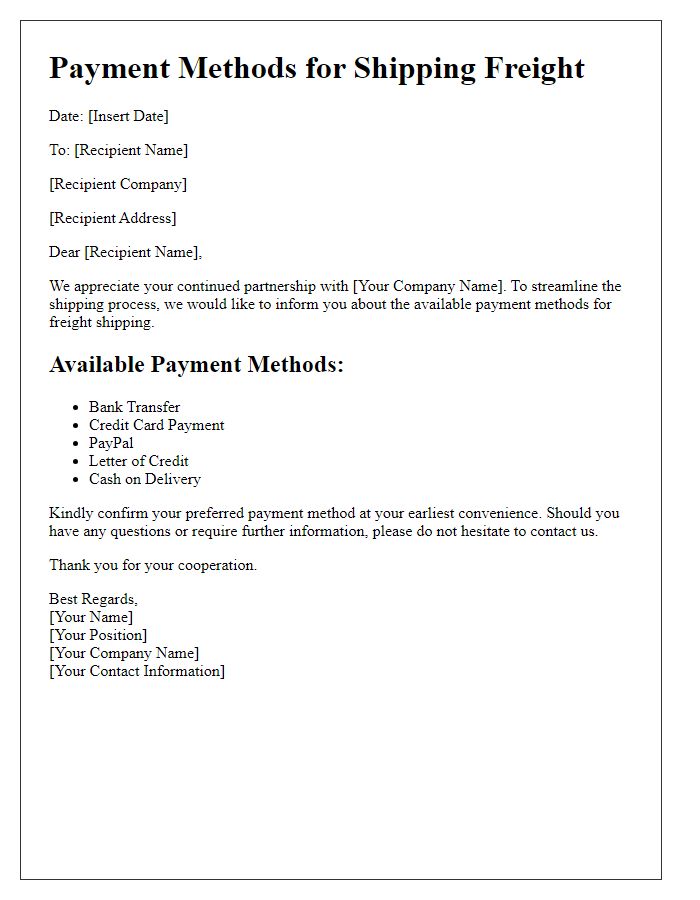
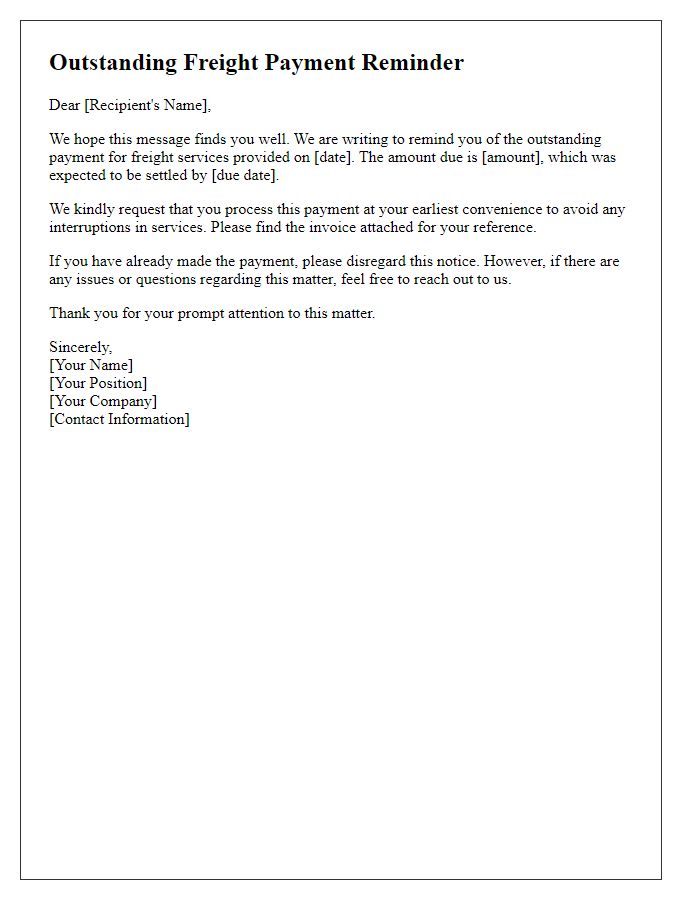
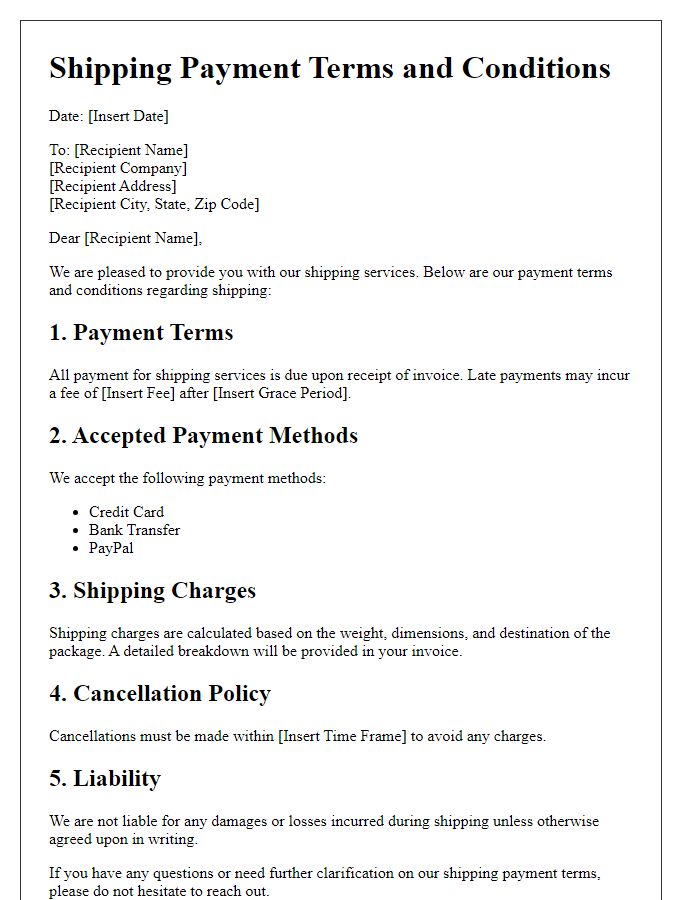
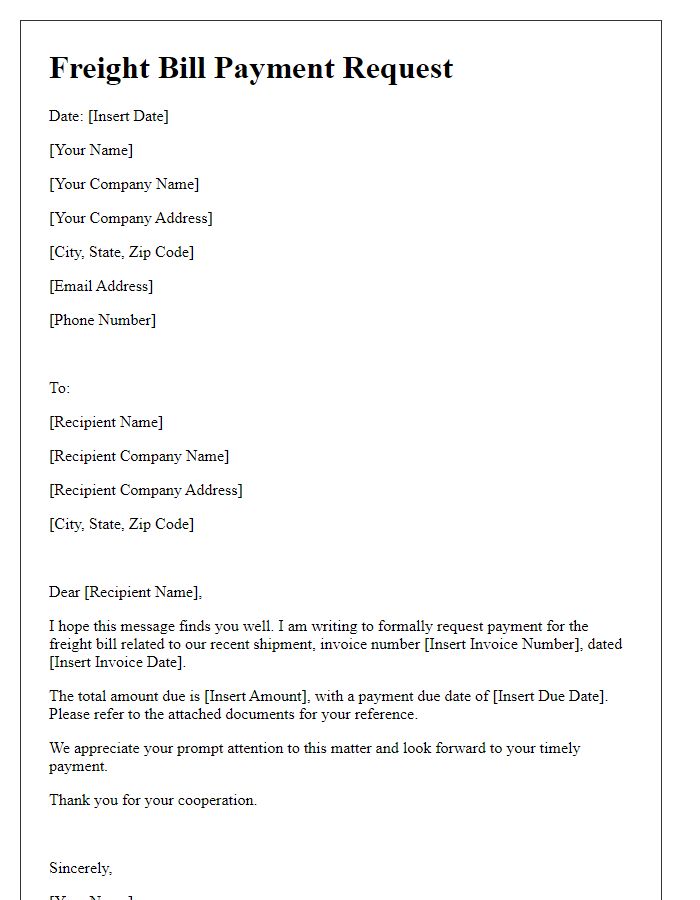
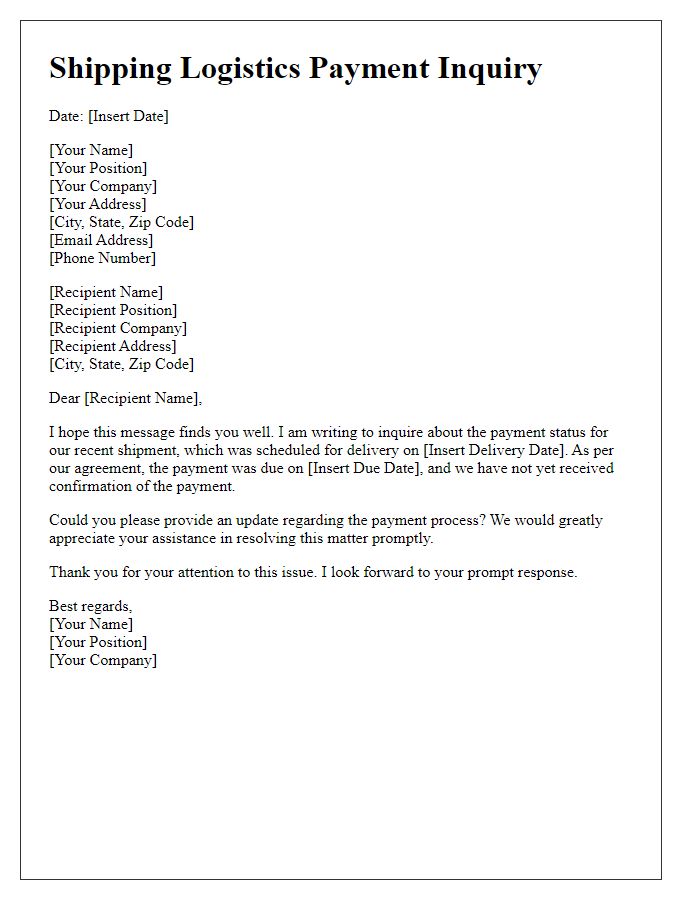
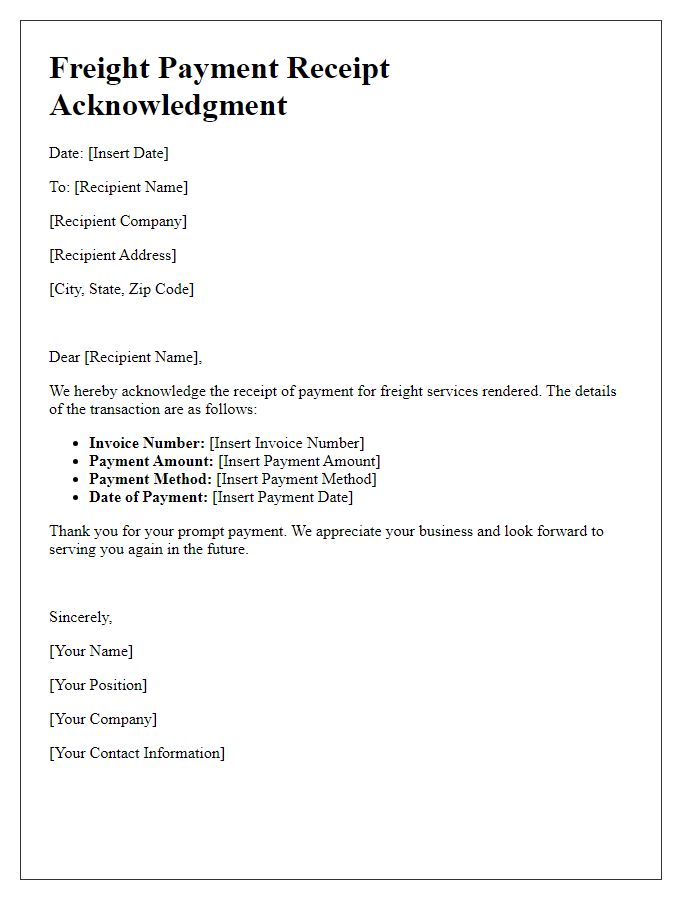


Comments